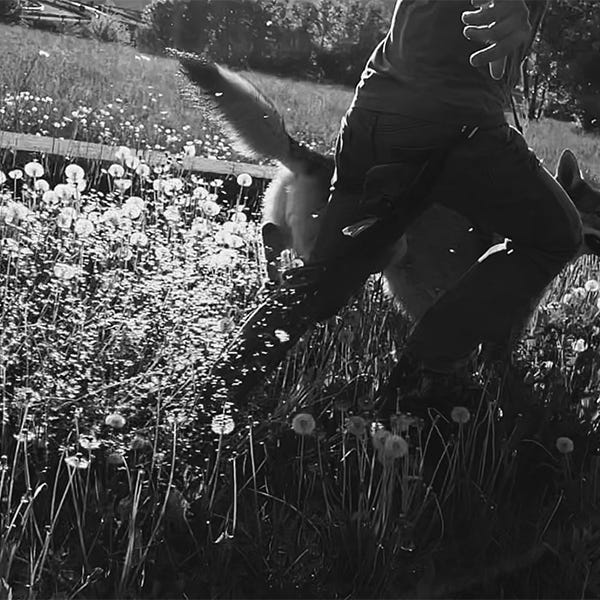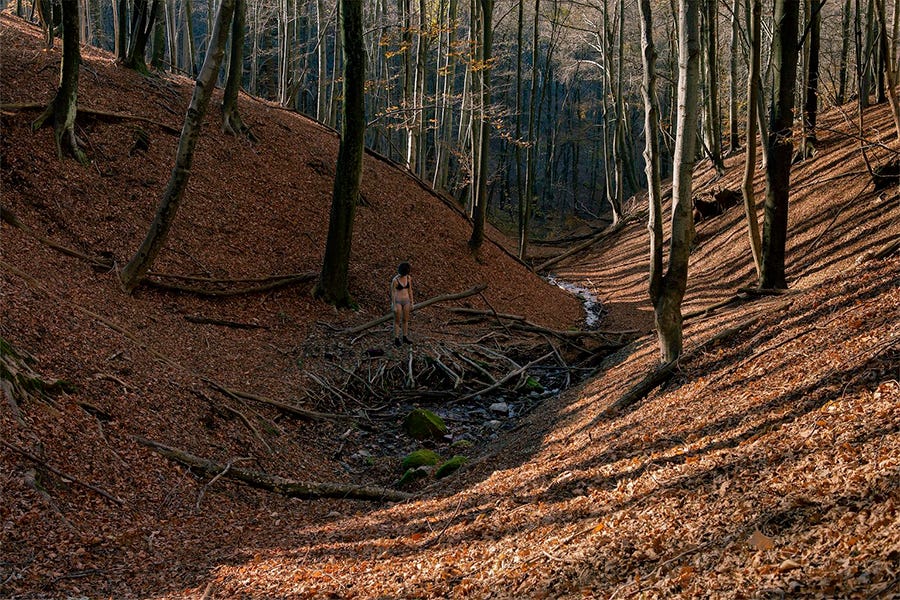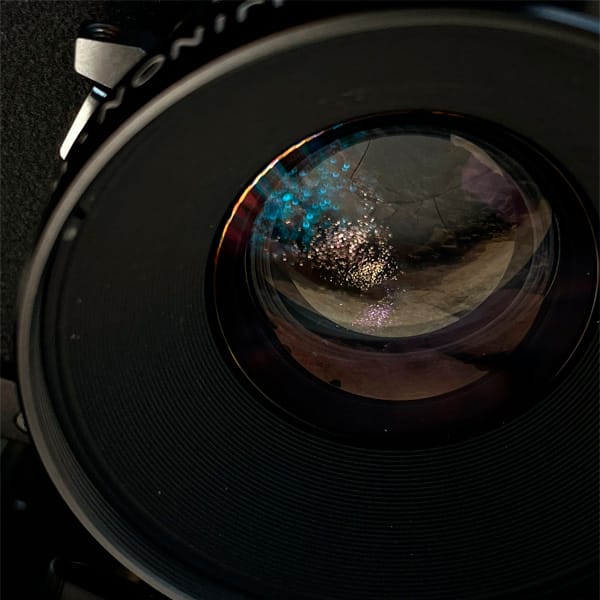#EN1.12 The well

Oh well...the time has come to fill it again.

During the pandemic years, I decided to go back to college. To my surprise, getting back into books after the age of 30 was easier than I expected. Many people ask me what it’s like to go back to studying, but I have always been one of those “never stop learning” people. I never really stopped, so I find it difficult to give a credible answer. For me, learning is as easy as going to the grocery store. I enjoy learning new things.
«Having a shelf full of books that you haven’t read is better than a shelf full of books that you have read - and this part is important to me - I want my life to be about potential and inquiry rather than conquests». Ian Lynam, The Impossibility of Silence: Writing for Designers, Artists & Photographers. Onomatopee, edizione 2020.
I am currently studying psychology and it’s common for people to assume that I can diagnose any disorder or analyze anyone I meet. However, the reality is quite different from what people think. While many psychology students pursue a career in the clinical field, I chose to enroll in this faculty to improve my photography skills. Photography is what I do and it’s a practice that often puts me in situations where I face doubts, make choices, and encounter complex relationships. Despite the challenges, I find it immensely satisfying. Psychology has become a useful tool for perceiving the world and photography as a complex system. Although I don’t believe psychology is necessary to make photographs, it has helped me understand a few things better.
«What Carlo Emilio Gadda had in mind when he set out to write Quer pasticciaccio brutto de via Merulana in 1946 was a detective story but also a philosophical novel. The detective plot was inspired by a recent crime in Rome. The philosophical novel was based on a conception enunciated from the very first pages: nothing can be explained if one merely looks for a cause for every effect, because every effect is determined by a multiplicity of causes, each of which in turn has many other causes behind it; every fact (e.g., a crime) is like a vortex in which different currents converge, each moved by heterogeneous impulses, none of which can be neglected in the search for truth. A view of the world as a “system of systems” was set forth in a philosophical notebook found among Gadda’s papers after his death (Milanese Meditation). [...] Every element of a system is a system; every single system is connected to a genealogy of systems; every change of an element implies the deformation of the whole system». Italo Calvino, Perché leggere i classici (Why Read the Classics). Milan, Mondadori, 1995.
A few years ago, I worked on a personal project. It was…goodish. But I decided to never publish it. I showed some pictures to people I knew and people who didn’t know me at all. It was then that I realized that I lacked the words to tell what I really cared about. Some black holes inside me prevented me from expressing everything I wanted to say.
«It is to cross the land of language to the threshold where it borders the void. Up to that line where the invisible sends its flashes, the enigma its refractions. On this path, proximity to things is listening to their suspended and enchanted resistance to nothingness. A perception unfolds: the belonging of the living, of every living form, to the horizon of finitude». Yves Bonnefoy, Poesia e fotografia (Poetry and photography). O Barra O Edizioni, 2015.
In the last few months, I have written multiple times about how patterns, automatic processes, and instincts play a significant role in photography. Rational thinking is only a part of it since other aspects of ourselves come into play as well. Not everything needs to be expressed through words.
«By aesthetic ideas [...] I mean those representations of the imagination which give occasion for much thinking, without, however, any determinate thought, that is, any concept, being adequate to them, and, consequently, no language can perfectly express them and make them intelligible [...]. “Aesthetic ideas”, in other words [...] show an inexhaustible surplus of sensible form over the work of conceptual unification [...]». Pietro Montani, L’estetica contemporanea (Contemporary Aesthetics). Carocci, 2004.
There are some situations where simply saying “this is how I feel” is not enough.

When you’re talking to yourself, you have the freedom to do as you please. However, when discussing something fundamental with others, it becomes crucial to ensure that they receive the necessary (or at least some) information. This may require exploring different channels and languages.
I was so confused. So I went to a large bookstore in Milan to find a clue, ANY clue, and spent a lot of money on psychology books. Don’t do it. The psychology section of bookstores is very much like a black hole. While you can find important texts, many manuals are designed “just to sell”. Additionally, psychology is a relatively new discipline and some topics only have uncertain answers. It can be challenging to narrow down the research field as everything can be viewed from various valid perspectives that do not exclude each other.
Long story short: I spent two years reading manuals and gathering information, but I always felt like I couldn’t connect the dots. Then the pandemic hit, and remote studying became an option. So, I decided to start from the beginning and study psychology. While studying, I took notes and realized how well they connected with photography. These notes became Making Pictures, a collection of thoughts and quotes that explore the relationship between psychology and photography. The discourse is open and ever-evolving, exploring different threads and ideas.
«The universe unravels in a cloud of heat, plunges without escape into a vortex of entropy, but within this irreversible process there can be zones of order, portions of existing that tend toward a form, privileged points from which it seems to glimpse a design, a perspective. The literary work is one of these minimal portions in which the existent crystallizes into a form, acquires a sense, not fixed, not definitive, not stiffened in a mineral immobility, but living like an organism». Italo Calvino, Lezioni Americane. Sei proposte per il prossimo millennio (Six Memos for the Next Millennium). Mondadori, 2016.
This is my last post of 2023. There will be some changes in January, but I will inform you about them later. For now, I need to take a little break to replenish my creative well. By this, I mean that I have used up all the notes I had taken and I require some time to read, recopy quotes and notes, rearrange my ideas, and take photographs. I believe that creative ideas do not come from sudden inspiration, I don’t rely on muses.
«As for muses, muses come and muses go. Muses use you up and suck you dry. Muses desert you. For some, the muse never actually appears.
A healthy relationship has to be made collaboratively - each of you gives and it coalesces into outcome after outcome, but the times of stasis should also be healthy». Ian Lynam, The Impossibility of Silence: Writing for Designers, Artists & Photographers. Onomatopee, edizione 2020.
This is the first time I have carried on a conversation, a publication, a newsletter, or whatever we want to call it, for so long, feeling that I still have a lot to share. Even after so many months, Making Pictures continues to receive new subscriptions, even though I do zero publicity about it. I am very happy about that and I thank you so much for every bit of support you have given me over this past year.
I’m looking forward to finishing my psychology studies by the end of 2024. I won’t diagnose or profile people, nor will I read people’s personalities from their photographs.
I have been learning a lot lately, including the fact that it’s not polite to psychoanalyze people. We tend to analyze and explain things based on what we see, but we forget that what we see is just one version of the truth that may not be entirely accurate. Our perceptions are influenced by space and time, and what we believe to be true is simply a probability, not an absolute fact.
It’s impossible for anyone, sometimes even the person themselves, to fully know what lies within them. And that’s perfectly fine.
«Have patience with everything that remains unsolved in your heart. Try to love the questions themselves, like locked rooms and like books written in a foreign language. Do not now look for the answers. They cannot now be given to you because you could not live them. It is a question of experiencing everything. At present you need to live the question. Perhaps you will gradually, without even noticing it, find yourself experiencing the answer, some distant day». Rainer Maria Rilke, Letters to a Young Poet. Dover Publications, 2002.



